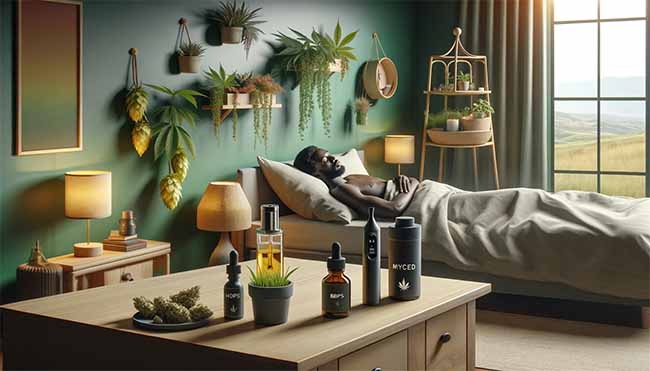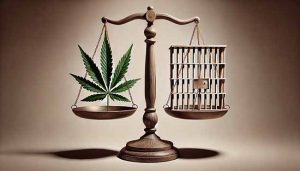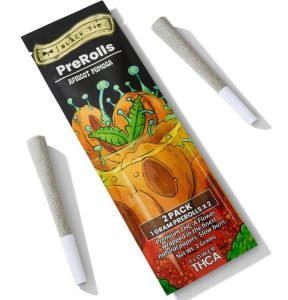A Comprehensive Study on Usage and Effects

In a recent study, a significant number of participants who used cannabis for better sleep reported discontinuing their use of over-the-counter or prescription sleep aids. The study, led by Washington State University, involved a survey of 1,255 cannabis users, with over 80% indicating they no longer relied on sleep aids like melatonin and benzodiazepines. Instead, they preferred using high-THC cannabis through smoking or vaporizing, methods known to aid in falling asleep quickly.
About half of the study’s participants also chose cannabis strains containing CBD and the terpene myrcene, commonly found in hops, basil, and other plants. Carrie Cuttler, the study’s senior author and an associate professor of psychology at WSU, expressed surprise at the preference for myrcene, noting existing scientific evidence supporting its sleep-promoting properties.
The study, published in the journal Exploration of Medicine, was co-authored by Cuttler and psychology doctoral student Amanda Stueber. They analyzed data provided by Strainprint®, a Canadian medical technology company, focusing on the use and perceived effects of cannabis and other sleep aids.
Participants reported various morning outcomes and side effects. Those using cannabis typically felt more refreshed and focused, with fewer headaches and less nausea compared to traditional sleep aid users. However, cannabis users also experienced more sleepiness, anxiety, and irritability in the morning, along with dry mouth and red eyes.

Cuttler highlighted that cannabis use for sleep was generally viewed as more beneficial than over-the-counter or prescription sleep aids. Notably, cannabis didn’t produce a ‘hangover’ effect, although some lingering effects like sleepiness and mood changes were reported.
The research found that over 60% of participants achieved the recommended six to eight hours of sleep with cannabis alone, while less than 20% reached this sleep duration with other sleep aids. Only a minority used cannabis edibles or THC capsules for sleep, likely due to their slower onset of action.
While the study largely favored cannabis for sleep, Cuttler cautioned about its limitations, including a bias towards participants already perceiving cannabis as beneficial. She advocated for future research with more objective sleep measures to fully understand cannabis’s impact on sleep.
Cuttler and Stueber hope their findings will inform healthcare professionals working with cannabis users and those seeking alternative sleep solutions. The study also lays the groundwork for future clinical trials to assess the effectiveness of myrcene and other non-intoxicating compounds in cannabis for sleep.
Reference: Stueber A, Cuttler C. A large-scale survey of cannabis use for sleep: preferred products and perceived effects in comparison to over-the-counter and prescription sleep aids. Explor Med. 2023;4(5):709-719. doi: 10.37349/emed.2023.00171





